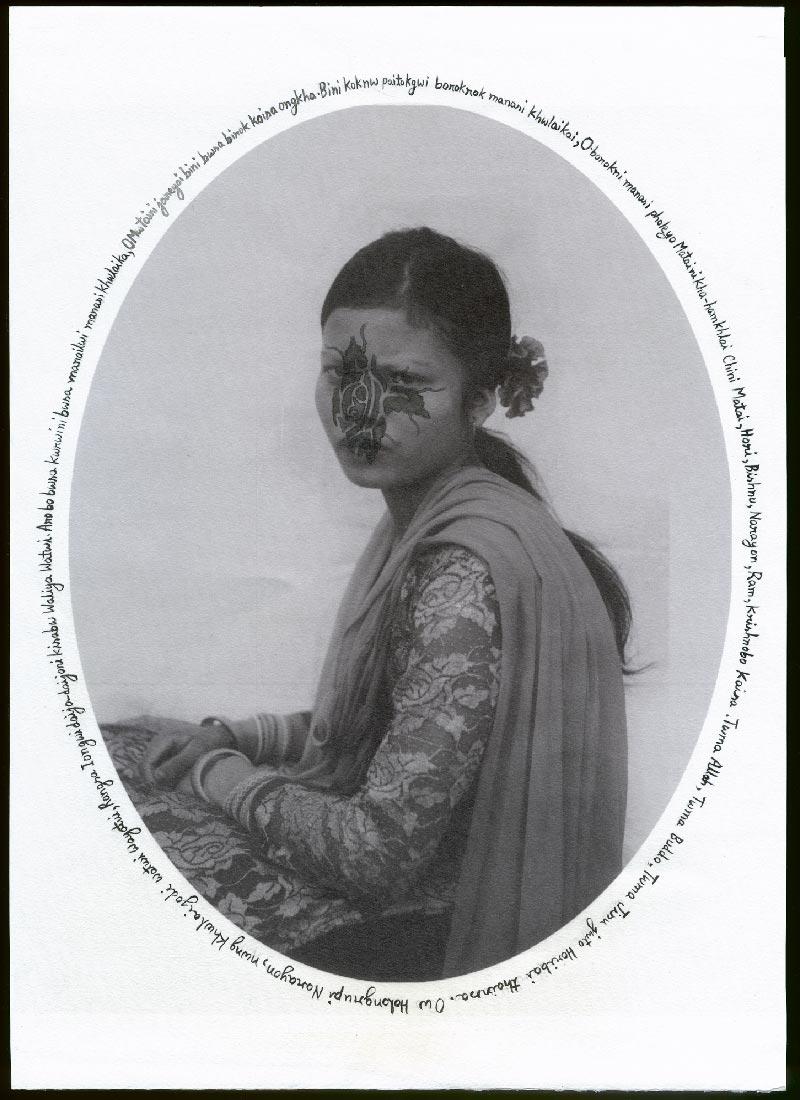Rape is Political: Ashfika Rahman’s Portraits from the Khagrachari Hills
Ashfika Rahman’s photo series titled Rape is Political attempts to visualise and give voice to the political nature of sexual violence in the Khagrachari hills in the borderlands of India, Bangladesh and Myanmar. In her artist statement for this body of work, Rahman says, “The attacks frequently occur where there are land disputes between an indigenous people and settlers and virtually all of the state administrative machinery is used to protect the rapists.”
The images are stylised to obscure the individual faces, and are reminiscent of early colonial photographs of the aristocracy. However, the inscriptions that encircle each photograph come from Rahman’s subjects, in various indigenous languages including Chakma, Marma and Tripura. They are prayers to be protected from monsters. Talking about these inscriptions, Rahman says, "This text is not meant to be read, rather, I wanted it to invoke the unexpressed pain of the community. I've used this text metaphorically within the image to give a sense of an unexpected and unknown oppression."
In her book, The Civil Contract of Photography (2012), photography theorist Ariella Azoulay proposes a new ontological-political understanding of photography and the various actors involved in a photographic encounter. She argues that “Anyone, even a stateless person, who addresses others through photographs or occupies the position of a photograph’s addressee, is or can become a member of the citizenry of photography.” In a similar vein, Rahman’s photo series asks the question (in her artist statement), “The sitters in the portraits are staring at us but, can we see them?”
Ashfika Rahman was born in Dhaka, Bangladesh. Her practice grapples with art and documentary photography, drawing inspiration from nineteenth-century prints which she imagines through contemporary techniques. Rahman studied photography in Hochschule Hannover, Germany and received a professional degree in Documentary Photography from Pathshala (South Asian Media Institute), Bangladesh, where she is now a faculty member.
All images by Ashfika Rahman.
Click on the image to view the album





